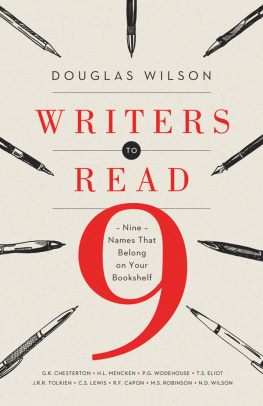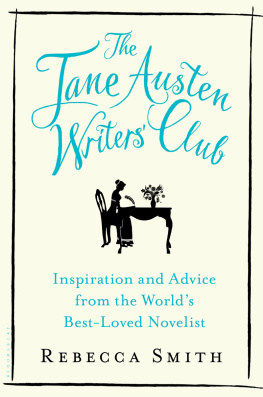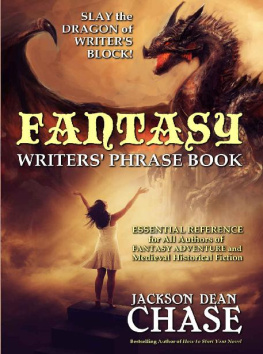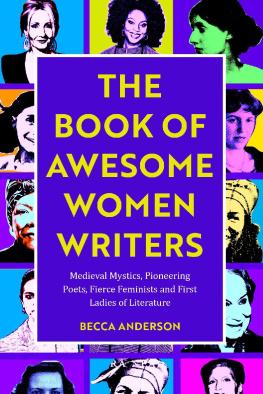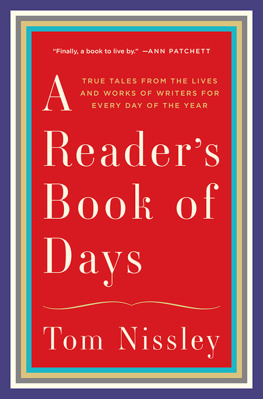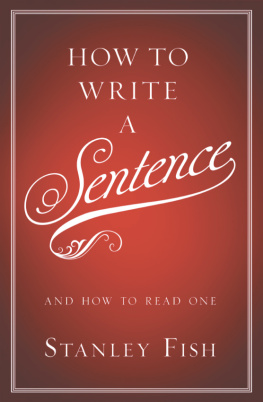Those Who Write for Immortality
H. J. JACKSON
Those Who Write for Immortality
ROMANTIC REPUTATIONS AND THE DREAM OF LASTING FAME

Published with assistance from the foundation established in memory of Calvin Chapin of the Class of 1788, Yale College.
Copyright 2015 by H. J. Jackson.
All rights reserved.
This book may not be reproduced, in whole or in part, including illustrations, in any form (beyond that copying permitted by Sections 107 and 108 of the U.S. Copyright Law and except by reviewers for the public press), without written permission from the publishers.
Yale University Press books may be purchased in quantity for educational, business, or promotional use. For information, please e-mail (U.K. office).
Set in Sabon type by Westchester Book Group.
Printed in the United States of America.
Library of Congress Cataloging-in-Publication Data
Jackson, H. J.
Those who write for immortality : Romantic reputations and the dream of lasting fame / H. J. Jackson.
pages cm
Includes bibliographical references and index.
ISBN 978-0-300-17479-3 (alk. paper)
1. English literature19th centuryHistory and criticism. 2. RomanticismEnglandHistory19th century. 3. AuthorshipEnglandHistory19th century. 4. Authors and readersEnglandHistory19th century.
5. Authors, English19th centuryAppreciation. 6. FameHistory19th century. 7. ReputationEnglandHistory19th century. 8. Influence (Literary, artistic, etc.)History19th century. I. Title. II. Title: Romantic reputations and the dream of lasting fame.
PR468.R65J33 2015
820.9008dc23
2014023095
A catalogue record for this book is available from the British Library.
This paper meets the requirements of ANSI/NISO Z39.48-1992 (Permanence of Paper).
10 9 8 7 6 5 4 3 2 1
For
Robin,
in memoriam
Contents
Preface
This is a book about writingspecifically, about the relationship between seeking lasting fame as an author and getting it. It did not begin that way. Originally I thought it might be interesting to work out how it could be that two writers whose works appeared practically indistinguishable to their contemporaries, such as Jane Austen and Mary Brunton or John Keats and Barry Cornwall, have come down to us as so radically different from one another that one is now a household name while the other is virtually unknown. Furthermore, the question of literary fame was so actively debated at the time that it is sometimes described as a turning point, when the rules of the game changed dramatically, though I think that in fact they underwent only minor modifications. Reception studies are seldom comparativethey tell the story, usually, of just one figurebut pairing authors offered a reality check, while multiplying the number of pairs would gradually expand the scope of the experiment and progressively test its conclusions. The proposed study was to be called Romantic Reputations. One of my colleagues, a Victorianist with a lurid imagination, nicknamed it the lost twins.
As I worked with the twins, however, it became so difficult to resist the impulse to polarize that I tried adding a third figure. That complicated the process and meant there were more variables to deal with, but it also increased the number of cases overall in a useful way and it seemed to temper the contrasts, adding shades of grey to the original black and white. In keeping with current trends in book history and cultural studies, the plan was to go beyond the traditional analysis of publication history and critical history (what professional reviewers and scholars have had to say) and to try, as far as possible, to take into account other, more popular aspects of reception, such as adaptation, illustration, and evolving cultural resonance. That was the task I set myself, with Lucasta Millers brilliant book about the Bronts as a model to aspire to. It also opened up the study as a whole, since it introduced a cluster of ideas that are not only historically significant but also still operative in the modern world.
In 2010, when the Library of Congress announced that it would be preserving and storing all the messages on the social networking site Twitter, one of the babbling heads on TV said an odd thing: he said that some messages were more momentous than others and that we do want to save those tweets for posterity.of rivalry among contending gatekeepers. Such a profound change in the conditions of tweeting will transformmay already have transformedthe mental approach of all parties. When senders have to consider the way they will appear to the unknowable readers (and gatekeepers) of the future, not just to their peers, they will pick their subjects and attend to their style in a different way; their writing will become more self-conscious, more guarded, more artful, less like birdsong. The attitude of addressees is liable to be affected too; they will be more inclined to evaluate the messages they get in comparison with one another. In general, the possibility of preservation introduces a measure of worth and discrimination: is this tweet (that I am sending or receiving or having passed on to me) one that, more than others, deserves to be kept?
The mindset of writing to last, with attendant implications for writers, readers, publishers, and critics, is the central subject of this study now. The common word posterity and the idea of being kept for posterity, however, encompass a range of meanings and motives. In the case of the tweets, they might begin with the comparatively neutral significance of being available for readers in the future. Only I question whether it was new in or peculiar to that period. Can it even be said to have been dominant then? There might have been a change of emphasis, but was there a fundamental shift in the concept of authorship?
As far as I can see, the attitudes of writers toward their present and future audiences, and thus toward their own work, were not all that different in Authors would have had an array of options to choose fromhad they been making conscious choices, though most of them were not. With this conviction, I cast my net wider than I had once intended, aiming to investigate the reception of a cohort of Romantic writers, mainly poets but also some novelists, with special attention to their views about their goals in writing; and then to see whether in actuality their goals were met. Did they get what they expected as they expected; if not, why not? In order to explain the goals themselves, it was necessary to look back to classical models and to the most influential versions of those ideas in the generation preceding the early Romantics: that is the ground covered by the first chapter. I wanted to avoid the narrow and negative focus on posterity and therefore settled on the larger notion of literary immortality, adopting a phrase of Samuel Johnsons for my title.
The framework of this book may thus be a set of ideas associated with writing for immortality, but the bulk of it consists of case studies in the reception of a dozen authors. Though I prepared and made some headway with several others, it seemed better to retain plenty of grassroots evidence than to base conclusions on generalizations that readers would have to take on trust. For that reason, the core sample remains quite small. I wish there had been room for more. I gave up most reluctantly the idea of a chapter bringing together Byron, Moore, and Wolcot (Peter Pindar, the most popular satirist of his day); perhaps, if the methods I have used here appeal to other scholars, someone else will write it another day.
Next page

